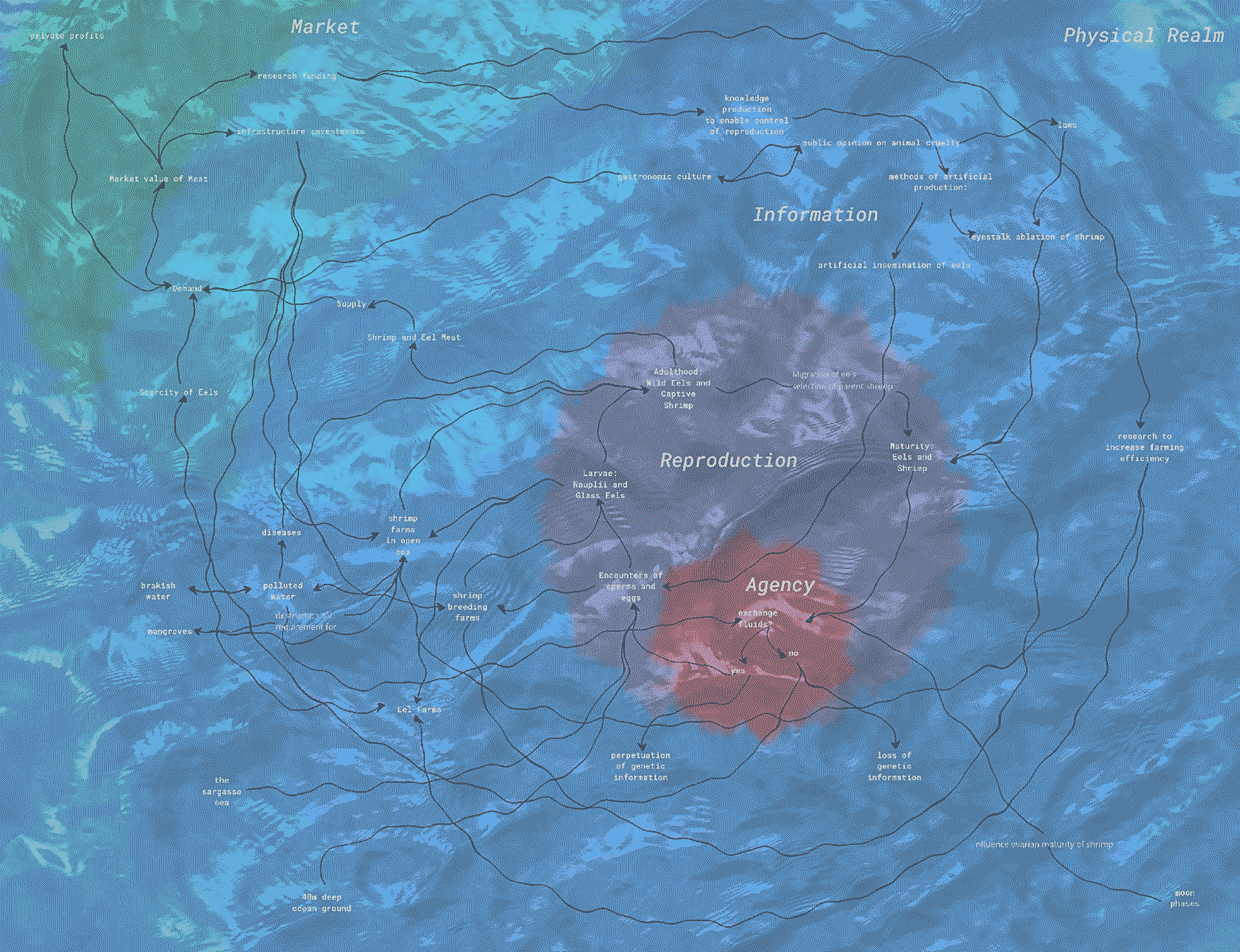We were particularly interested in the idea of shrimps and eels having agency in an economic context. For instance, the commercial production of freshwater eels entirely relies on their intercourse taking place at the heart of the Atlantic Ocean which no humans has ever witnessed. Humans have long been attempting to reproduce eels artificially but this hasn’t been successful yet. Eels are becoming more unavailable in the market since their population declined drastically in the late 1980s, and there has been even more significant demand for humans to study how eels reproduce. It’s not a coincidence that the majority of eel knowledge is produced in the countries in which eels are consumed as a source of food. Similarly, German shrimp farmers could not produce the right circumstances for a reliable reproduction of shrimps in their tanks. The shrimps, and their reasons to engage or not engage in mating, became a decisive economic factor to the farmers.
What if we regarded shrimps and eels as economic subjects that hold agency in the economic systems relying on their exploitation? And how would we communicate that notion?

💧Shrimp Love
💧The hypothetical eel-centric atlas on how humans have sex
💧Show me Love